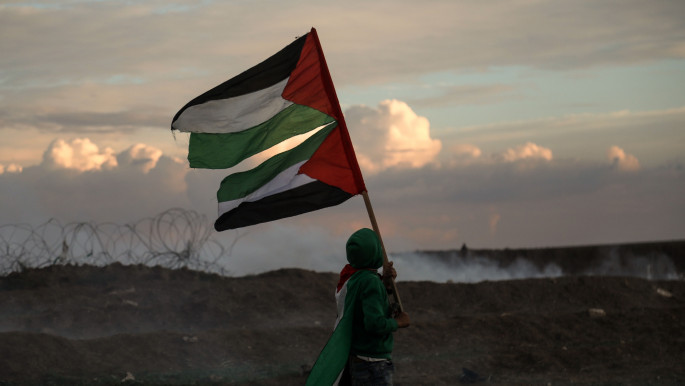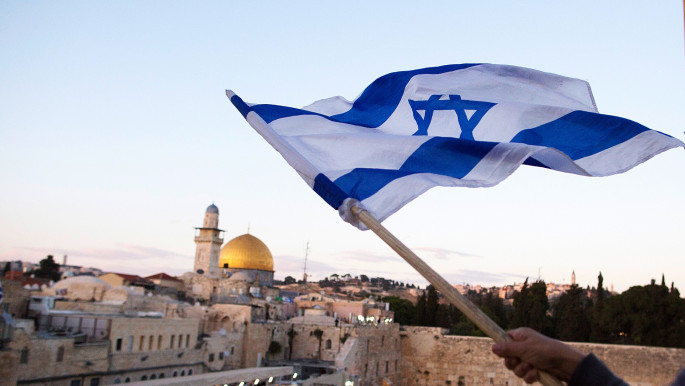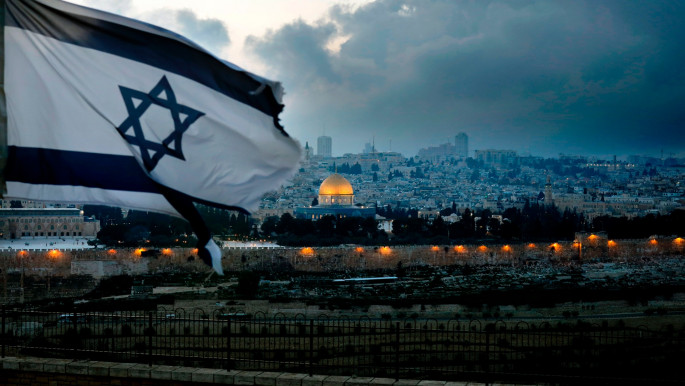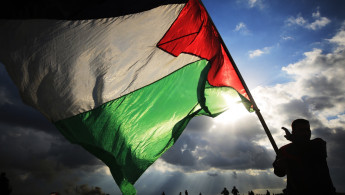As Arab countries edge towards Israel, what's next for the Palestinian national movement?
Last Thursday, a long-awaited meeting between Palestinian Authority President Mahmoud Abbas and leaders of all Palestinian factions, including Hamas' head Ismail Haniyeh and Islamic Jihad's chief Ziyad Al-Nakhalah, was jointly held between Ramallah and Beirut.
In recent years, Hamas and other Palestinian factions have repeatedly called for such a meeting to be held but Abbas always declined, demanding that Hamas first commit to implementing previous unity agreements.
But as the challenges facing the Palestinian national movement have mounted - the most recent of which was the normalisation deal between the UAE and Israel - Abbas finally agreed to the high-level contact between factions.
Prompted by Israel's annexation plans, over the past two months Hamas and Fatah have engaged in talks in a rare sign of cooperation designed to present a unified front and discuss joint popular resistance against Tel Aviv's 50-year military occupation.
In last week's meeting, Palestinian factions issued a joint statement reaffirming their rejection of US President Donald Trump's peace plan and Israel's annexation, as well as the normalisation of ties between Israel and Arab countries.
 |
As challenges facing the Palestinian national movement mount, political factions have embarked on a new course to advance national unity |  |
The outcome of the leadership meeting was that Palestinian factions agreed on the formation of three committees. The first is a committee that will form a unified national field leadership that will lead popular resistance against the Israeli occupation. The second committee is assigned the task of reaching a jointly-agreed-upon vision for restoring unity between Gaza and the West Bank, and the third is assigned the task of reviving the Palestinian Liberation Organisation (PLO).
The three committees will include representatives from all 14 Palestinian parties that participated in the meeting and are expected to be formed in the coming days. Once established, they will be given a five-week time period to conclude their deliberations. Abbas has pledged that he will agree to all of the recommendations put forward by the committees.
 |
|
| How the Israel-UAE alliance formalises new fault lines in the Middle East |
Hamas and Fatah have been at loggerheads since 2007 when Hamas ousted Fatah-led security forces from power in Gaza following months of tensions. Multiple agreements between the two sides have been reached to achieve unity, but none have materialised.
Many Palestinian officials have expressed hopes that current intra-Palestinian talks and the recently-achieved progress between Hamas and Fatah may this time lead to a breakthrough.
Senior Fatah official Abdullah Abdullah told The New Arab that proposed measures from the recent meeting between political factions were "very important steps towards ending the division and uniting the internal Palestinian front to confront the dangers and threats facing the Palestinian cause."
Abdullah said that the committees will commence their work based on the principles adopted in talks between Hamas and Fatah over the past two months, meaning that they will "start with the common denominators that unite the Palestinian factions."
"If we are going to start from the points of disagreement, it'll take us a long time and we will never reach unity. Therefore, we have to start from the points of agreement, which are basic and strategic. This will lead to building bridges of trust and in turn facilitate the way to discussing the points in which there are disagreements," Abdullah said.
 |
Current political developments necessitate the need for putting factional interests aside, everybody needs to sacrifice in order to restore the Palestinian people's trust |  |
Hamas and Fatah's talks over the past two months were characterised by trying to find common ground between the two movements. Aside from their unified rejection of US-Israeli measures and normalisation, the two main Palestinian movements also agreed that non-violent popular resistance is the preferred strategy for the time being to resist Israel's military occupation.
Secretary-General of Fatah's Central Committee, Jibril Rajoub, who initiated talks with Hamas in June, on Tuesday told reporters that Palestinian factions have agreed on a "unified program for popular resistance against Israel."
The senior Fatah official said that a unified field command comprised of all Palestinian factions would be announced soon, as well as a program for popular resistance which includes civil disobedience. "There will be a change in the rules of engagement in agreement with all factions, and we will not allow the occupation to uproot an olive tree, or to injure a Palestinian without paying the price."
 |
|
| Read more: After UAE-Israel deal, which Arab countries could be next? |
Senior Hamas official and former minister for prisoner affairs Wasfi Qabha told The New Arab that the meeting of leaders "came at the right time to save and revive Palestinian political bodies, through finding common ground and consensus issues among Palestinian factions."
"The recent meeting and its outcome gave the Palestinian people hope and optimism, and now they want to see implementation of those positions on the ground," he added. "Everyone understands how critical this stage we're at is, and that there are real threats facing the Palestinian cause."
Abdul-Rahman Zidan, a senior Hamas official and former member of the Palestinian Legislative Council (PLC), praised the progress achieved with Fatah. "The meeting was positive because it came without mediation and it came after prior and in-depth dialogues between Hamas and Fatah, leading to the long-awaited meeting," he said.
 |
There are a lot of prominent leaders on both sides with accumulated vested interests in the status quo |  |
"The current political developments necessitate the need for putting factional interests aside, everybody needs to sacrifice in order to restore the Palestinian people's trust and strengthen their steadfastness to face the challenges."
Because the fruition of intra-Palestinian talks has proved so elusive over the past 13 years, many Palestinians reacted to the news with indifference and expressed scepticism that current efforts would lead to a breakthrough.
 |
|
| Read more: The day after annexation: Israel, Palestine and the one-state reality |
Palestinian political analyst Muhammad Shehada believes that self-interested officials on both sides may affect the success of unity talks unless neutralised early on.
"The success or failure of these committees is largely contingent upon power divides on the ground. There are a lot of prominent leaders on both sides with accumulated vested interests in the status quo, who would perceive a threat to their established interests in Palestinian unity. Those would likely fuel tensions and undermine reconciliatory efforts unless neutralised early on," Shehada told The New Arab.
"The comprehensive and inclusive nature of these committees is a positive and promising sign of seriousness in pursuit of an up-to-date analysis and recommendations that genuinely depict the situation as it is and seek to change it. What remains to be seen is how serious divided Palestinian leaders, from both sides of the aisle, would be in terms of respecting the recommendations of these committees," he added.
Despite widespread reservations, relations between the two Palestinian factions have largely been positive over the past few weeks. Hamas leader Ismail Haniyeh called the meeting of factions "historic" and praised Abbas, a move considered rare by leaders of the Islamist party. In another uncommon move, Haniyeh appeared this week in an interview on Palestine TV, the Palestinian Authority's official television station, the first of its kind by a Hamas leader.
Follow him on Twitter @_Ali_Adam_



